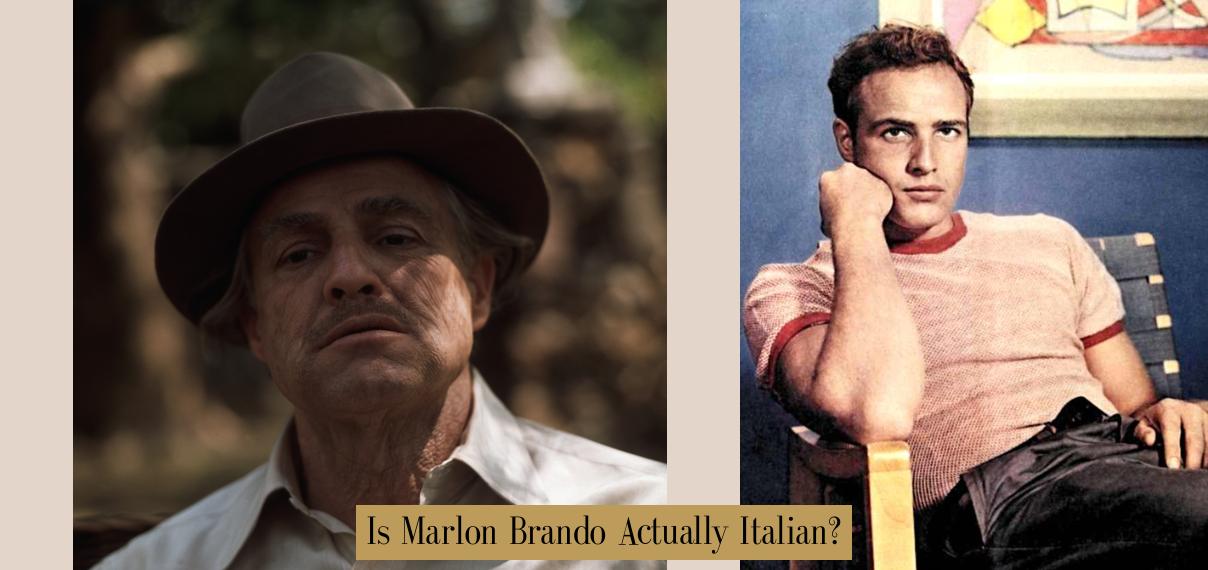Is Marlon Brando Actually Italian? The Shocking Truth Behind the Godfather’s Legacy
Spoiler Alert: Marlon Brando, the man who embodied the iconic Don Vito Corleone in The Godfather, wasn’t actually Italian. Hold your horses, I know this might be a shock to your system, like discovering that the pizza you’ve been ordering for years isn’t actually made with real mozzarella. But, like that fake cheese, there’s a story behind this revelation.
So, if Marlon wasn’t Italian, where did those captivating, brooding eyes come from? Well, Brando’s ancestry is a fascinating mix of European nationalities – a veritable melting pot of German, Dutch, English, and Irish bloodlines.
Imagine that: The Godfather himself, a man who personified the Italian-American experience, was actually a product of a different cultural cocktail! It’s like finding out that the guy who invented the “Italian” sausage wasn’t actually Italian at all – a culinary conspiracy of epic proportions!
But let’s not get ahead of ourselves. Let’s delve into the fascinating history behind the man who stole our hearts (and the acting world) with his performance as the enigmatic Don Corleone.
Tracing Brando’s Roots: A Journey Through European Ancestry
Marlon Brando’s lineage can be traced back to Johann Wilhelm Brandau, a German immigrant who arrived in New York City in the early 1700s. This Brandau, the patriarch of the Brando family, hailed from the Palatinate region of Germany. Talk about a long family history!
But that’s not the only European ancestry in his bloodline. Brando was also descended from Louis DuBois, a French Huguenot who settled in New York around 1660. So, the man who personified the Italian-American Mafia was actually a blend of German, Dutch, English, Irish, and even French heritage. It’s like a European family reunion in one man!
The Myth of Marlon Brando’s Italian Ancestry: A Hollywood Enigma
Now, you might be wondering, “If he wasn’t Italian, how did he nail the role of Don Corleone so perfectly?” Well, that, my friend, is the magic of acting. Brando’s talent wasn’t bound by his actual heritage. He was a master at transforming himself into any character, regardless of ethnicity.
He embodied the essence of Don Corleone, even if his bloodline didn’t align with the character’s lineage. It’s a testament to his acting prowess, his ability to immerse himself in a role and make us believe in his performance, even if it meant defying his true identity.
The Godfather’s Legacy: A Cultural Phenomenon Beyond Ethnicity
The Godfather’s legacy transcends ethnicity. It’s a story of power, family, loyalty, and betrayal that resonates across cultures. Marlon Brando’s portrayal of Don Corleone cemented the character’s place in cinematic history, regardless of his own heritage.
It’s like when a brilliant musician plays a song in a different language – the emotion and the artistry still shine through, even if the words are unfamiliar. Brando’s performance in The Godfather was a masterpiece of acting, regardless of his ancestry.
Brando’s Heritage: A Reminder of the Power of Transformation
Marlon Brando’s story reminds us that acting is a powerful art form capable of transcending ethnicity and cultural boundaries. He embodied the essence of a character, bringing him to life on screen, regardless of his own bloodline.
It’s a reminder that we shouldn’t judge individuals based on their ancestry. We should appreciate the richness and complexity of human experiences, the stories we tell, and the characters we portray, regardless of our own heritage.
So, the next time you see The Godfather, remember that Marlon Brando wasn’t Italian. He was a master of transformation, a chameleon who could inhabit any character with his remarkable talent. And that, my friends, is the true legacy of a cinematic legend.
